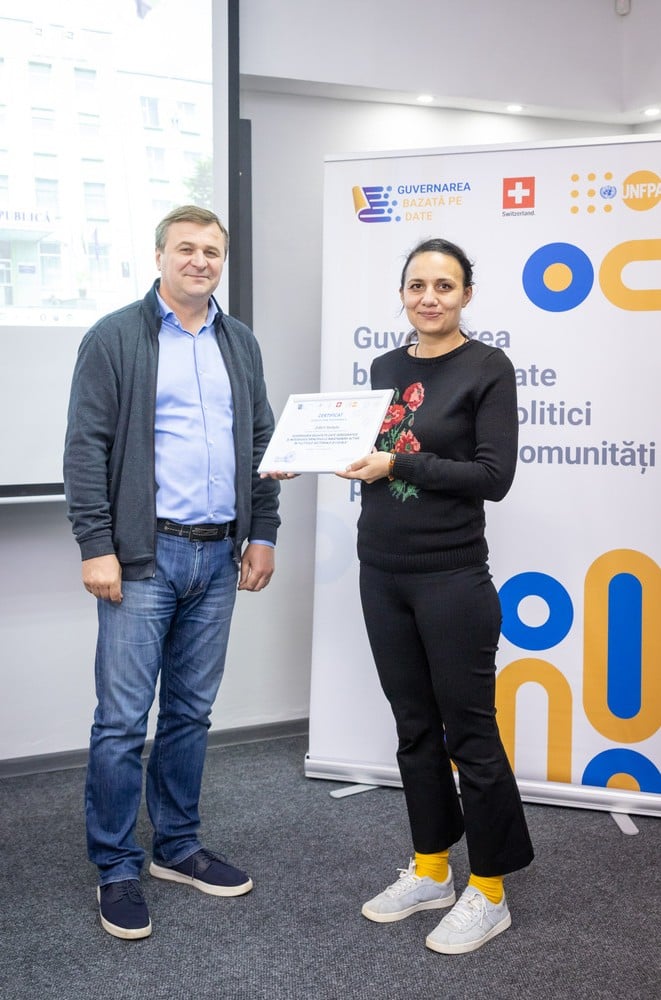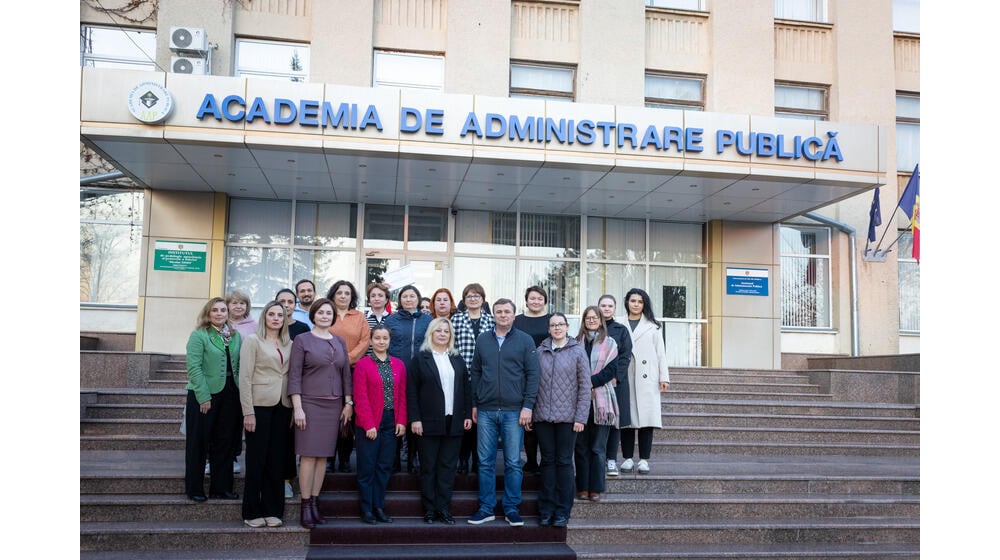The Republic of Moldova is making significant strides in integrating data governance and artificial intelligence (AI) into public sector policies. From November 5-8, 2024, the first 20 representatives from local and central public authorities participated in a pilot training session aimed at enhancing the capacities of public officials in policy development and preparing Moldova for its future EU accession. The course, piloted at the Institute of Public Administration with support from UNFPA, is part of a larger project titled “Data-Driven Governance and Integration of Active Aging in Sectoral and Local Policies.” After the pilot phase, the course is expected to be institutionalized.
Like many other countries, Moldova faces significant challenges related to outmigration, especially among younger generations, and an aging population. By 2040, it is projected that one in three people in Moldova will be over the age of 60. In light of these rapid demographic changes, Moldovan authorities need to develop policies and programs that promote inclusive development, considering population projections and addressing the needs of all people.
UNFPA Moldova’s Program Analyst, Aliona Cristei, highlights that this training session represents a crucial step for Moldova and is part of a larger UNFPA initiative aimed at not only gathering demographic data, but also using it to make informed decisions that address both current and future needs of the population, contributing to the demographic resilience of the country.
"In communities facing declining birth rates and increased out-migration, it’s important to create continuous learning and professional development opportunities for local public authorities. By incorporating demographic data into the policy cycle, we ensure greater transparency and evidence-based policy-making, which are essential for EU accession. This innovative course, focused on demographic analysis and data-driven governance, supports the Government’s efforts in building a modern and efficient public administration," stated the UNFPA Program Analyst.

The course covers four essential modules, providing 32 hours of training to help officials:
- Analyze population structure and demographic trends;
- Develop local public policies based on concrete data;
- Integrate perspectives on active aging and youth;
- Use innovative technologies, including artificial intelligence, for data interpretation and analysis.
The first 20 public officials from central and local administrations have already completed the initial training and shared that the knowledge gained will be highly beneficial in the development of local policies and in attracting development funds for their communities.

“The course is essential because nothing can be developed or achieved in a locality if we don’t understand the target groups we serve. Additionally, we are concerned with migration and the growing number of elderly individuals. Through this course, we gained a clearer understanding of the data and how it should be approached, as without accurate data, we cannot design and implement an effective program. Each age group has different needs, so when we create a strategy, we need to set precise objectives, ultimately leading to a successful project,” said Mariana Croitor, Chief Specialist for Population acces records, City Hall of Strășeni.

Another public sector representative mentioned that the training provided a clearer picture of the population trends and the policies that can be developed for both the older persons and the youth.
“What I found most valuable was learning about demographic trends for the next 10, 15, and 20 years in our country – a picture that became much clearer after the course. It’s now obvious that local public authorities should consider this when planning activities. I also realized the importance of infrastructure for the older persons, as well as activities for younger generations who will essentially form the foundation of society. Before the course, data felt more general, but now data is something concrete. I know where to find it, how to use it, and what’s important,” stated Nadejda Zubcu, Project Specialist, City Hall of Nisporeni.

Following the pilot course, organizers aim to institutionalize it, making it accessible to all public officials starting in 2025.
The course materials were developed with support from UNFPA in partnership with the Ministry of Labor and Social Protection, the Institute of Public Administration - State University of Moldova, and funded by the Swiss Cooperation Office in Moldova. The course is part of the UNFPA project “Strengthening Governance Based on Reliable and Disaggregated Demographic Data for Central and Local Authorities.”


